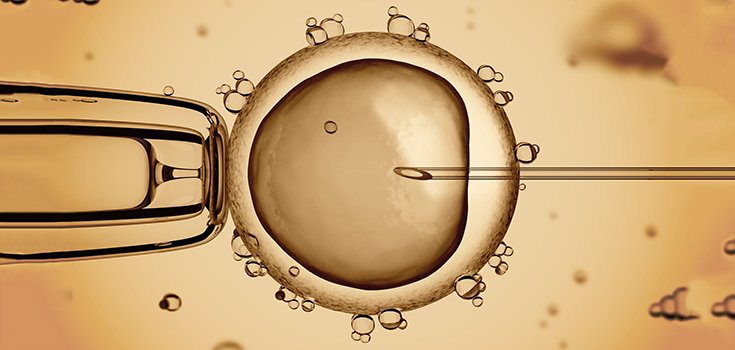Researchers Create Mouse Embryos Using GM Stem Cells

Researchers at Cambridge University in the United Kingdom have successfully created a mammal embryo using only genetically modified mouse stem cells, and it might not be too long before they’re able to start making human embryos the same way.
The researchers mixed 2 types of mouse stem cells and placed them on a 3D scaffold. The cells were allowed to grow for 4 days in a tank of chemicals designed to mimic conditions inside the womb, where they formed the structure of a living mouse embryo. [1]
The success of the experiment could eventually allow scientists to grow artificial human embryos in the lab without the need for sperm or an egg. This, researchers say, would help them to understand the earliest stages of human life and why so many pregnancies fail.
Read: Scientists and Activists Call for Ban on Human Gene Editing
Magdalena Zernicka-Goetz, senior author of the research, which was published in the journal Science, says:
“I not only want to understand the basic biology of development but also why it goes awry in the early stages of up to 70% of human pregnancies.” [2]
This isn’t the First Time
Researchers have attempted certain experiments in the past, but they haven’t been terribly successful. While they did manage to form embryonic bodies, they never followed the same chain of events found in nature, and lacked the structure of an embryo. In this latest experiment, the different stem cells began “to talk to each other,” which helped the embryonic stem cells, Zernicka-Goetz explains.
She adds:
“They respond by turning on particular developmental gene circuits or by physically changing shape to accomplish some architectural remodeling. This happens in normal embryogenesis and it is what we are trying to recreate in the culture dish.”
The artificial embryo created by scientists will never develop into a healthy fetus, as it would require the addition of endoderm stem cells, which Zernicka-Goetz says “does other things that are most likely necessary for further development.” She says it’s unclear whether adding endoderm cells would result in further development.
The creation of artificial embryos is wrought with ethical issues. Should scientists add endoderm cells that allow embryonic bodies to become fetuses, it could open the door to genetically modified humans and designer babies.
Dr. David King, director of the watchdog group, Human Genetics Alert, says:
“What concerns me about the possibility of artificial embryos is that this may become a route to creating GM or even cloned babies.
Until there is an enforceable global ban on those possibilities, as we saw with mitochondrial transfer, this kind of research risks doing the scientific groundwork for entrepreneurs, who will use the technologies in countries with no regulation.” [1]
Sources:
[1] The Telegraph
[2] CNN
